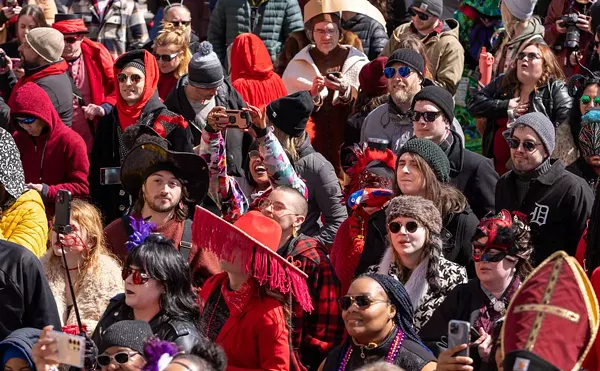In 1864 Queen Victoria was the most powerful woman in the world, ruling over a British Empire that would only expand during her 64-year (1837-1901) reign. But as Mrs. Brown opens, this very public figure is in the midst of debilitating grief.
Three years after the death of her husband, Prince Albert, Victoria is above all a widow. Having retreated from public life, she keeps everyone in her circle -- the extended royal family and all advisers, staff and servants -- in a state of perpetual mourning with her. As played by renowned British stage actress Judi Dench (whose occasional forays into films have included the meddlesome novelist in 1986's A Room with a View and the ball-busting M in 1995's GoldenEye), Victoria is a stately, regal open wound.
So in a last-ditch effort to revive Victoria's waning interest in life, two "prisoners of the queen's grief" -- her private secretary and yes-man physician -- summon a Scottish royal servant from Balmoral, in part because they believe "all Highlanders are good for the health." Who they get is as unexpected as he is effective.
John Brown (Billy Connolly), who served as a royal hunting guide and was a particular favorite of Albert, arrives to maintain the queen's horses and encourage her in some outdoor activities. He quickly challenges not just the rigid royal protocol but Victoria's active and stubborn grieving. In no time, Brown is regularly referring to the royal personage as "woman."
John Brown becomes a sort of stand-in for the late Albert, whose guidance Victoria seems to miss almost as much as his physical presence. He becomes her right-hand man, even controlling access to Victoria, which puts him at odds with the frustrated Prince of Wales (David Westhead).
Director John Madden and screenwriter Jeremy Brock, both veterans of British television, have taken this "Masterpiece Theatre" assignment and infused it with some of Brown's vigor and irreverence. The unlikely pair develops an intense, devoted and apparently platonic love affair, and the queen becomes derisively dubbed "Mrs. Brown" as observers question the hold this servant has over the supreme ruler.
Despite Victoria's naive resolve to live a private life, the public one she was born into comes calling in the form of Prime Minister Benjamin Disraeli (Anthony Sher), a masterful politician who needs an active queen to maintain his grip on power.
While most of the secondary roles are well-acted but woefully underdeveloped (John Brown's brother Archie seems to exist merely as a sounding board), Sher's Disraeli is a wonderful creation, seemingly aloof but controlling the proceedings like a master chess player.
Mrs. Brown is best at showing the subtly shifting interplay between Queen Victoria and John Brown. Dench and Connolly (a stand-up comedian who had a brief tenure on American television in "Head of the Class") give beautifully nuanced performances that manage to both confirm and challenge the image of Victorians as the standard-bearers of repression.
Serena Donadoni writes about film for the Metro Times. E-mail her at [email protected].






